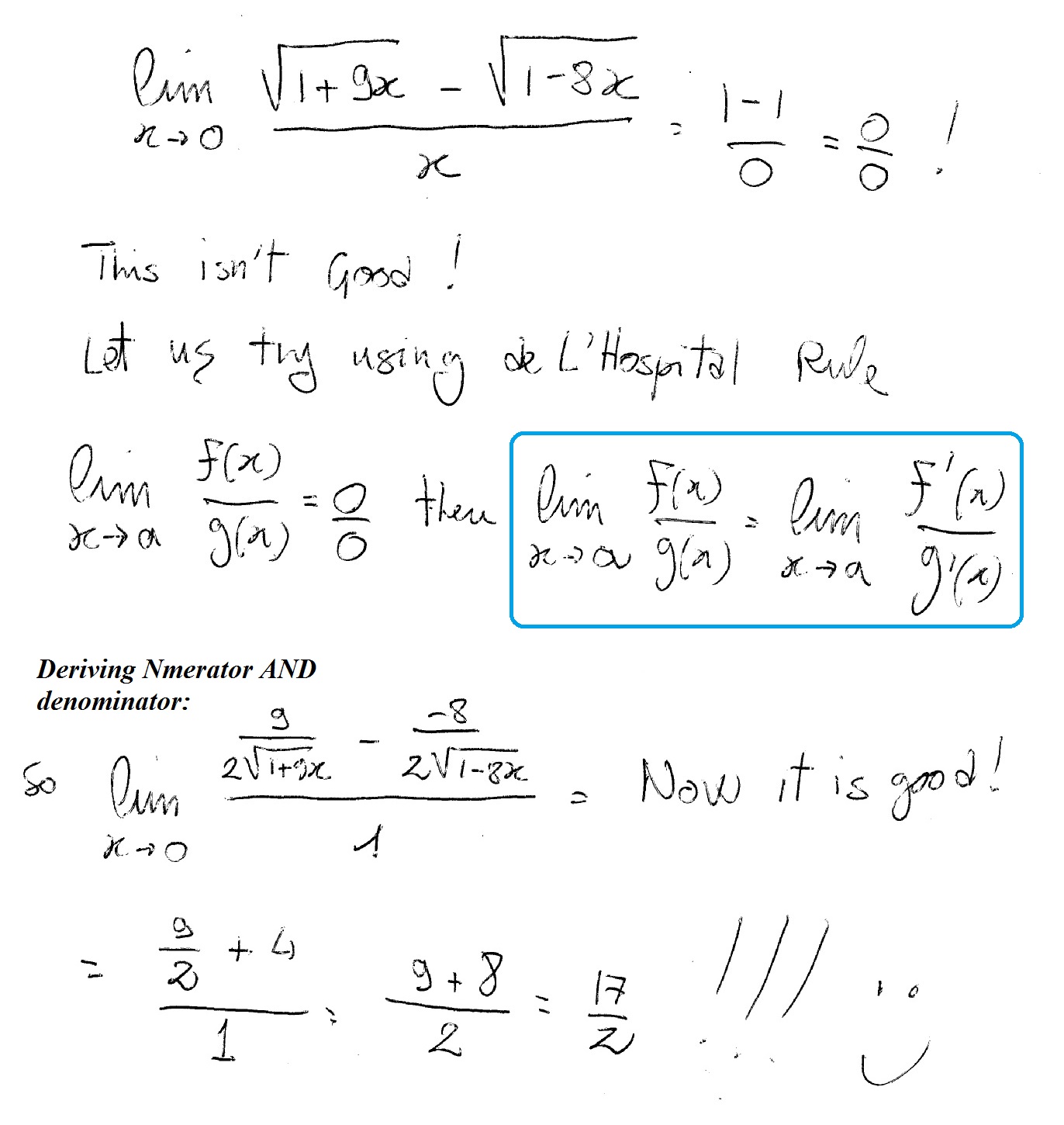How do you find the limit of #(sqrt (1+9x)- sqrt (1-8x))/ x# as x approaches 0?
2 Answers
I found:
Explanation:
If you try directly you get

"Rationalize" the numerator.
Explanation:
This is a trick (technique, method) that is very useful in calculus.
If we multiply
In this case:
We will multiply by
We get:
# = ((1+9x)-(1-8x))/(x(sqrt (1+9x) + sqrt (1-8x)))#
# = (17x)/(x(sqrt (1+9x) + sqrt (1-8x)))#
Now we can evaluate the limit by substitution.
# = 17/(sqrt(1+9(0))+sqrt(1-8(0)))#
# = 17/(sqrt1+sqrt1) = 17/2#
In a way, we have 'traded' a subtraction in the numerator that goes to


